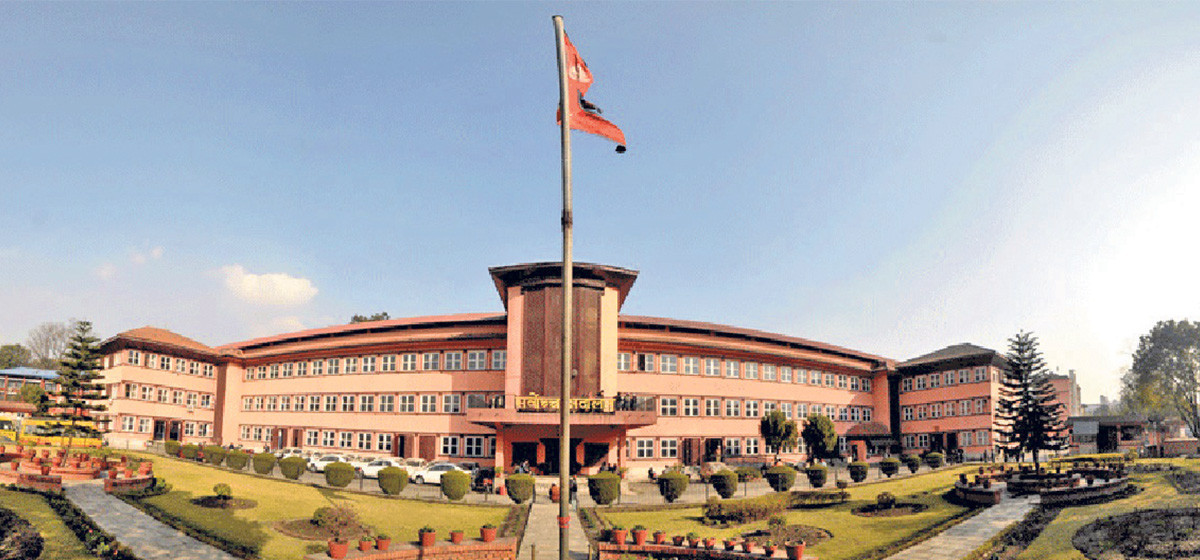KATHMANDU, July 20-- The controversy surrounding the procurement of 6.4 million electronic passports (e-passports) by the Department of Passports has reached the Supreme Court. The dispute arose after the department decided to award the contract to two German companies.
Following the department’s decision to grant a contract worth Rs. 7.66 billion to German companies Veridos GmbH and Muhlbauer ID Services for the printing of e-passports, advocate Kusum Kishor Koirala filed a public interest litigation (PIL) at the Supreme Court. The court has already issued an order to present further evidence related to the case.
Health department officials preparing to embezzle Rs 410 millio...

On Jestha 22, 2082 BS (early June 2025), the department decided to allow the two German companies to print 6.4 million e-passports over the next five years. Advocate Koirala challenged this decision in court. Earlier, French multinational tech company IDEMIA had already sought a review, claiming the bidding process was violated in favor of the German firms.
IDEMIA had filed a petition with the Secretariat of the Public Procurement Review Committee under the Public Procurement Monitoring Office, requesting a review of the decision to award the contract. When the request was not addressed, the matter was taken to the Supreme Court.
The petition accuses the Department of Passports, under the Ministry of Foreign Affairs, of awarding the contract in violation of the Public Procurement Act 2063, the Procurement Rules 2064, and several provisions outlined during the call for bids. The same allegations are reiterated in the Supreme Court petition.
In its response to the Public Procurement Review Committee, the department noted that the previous 34-page passport cost USD 10.13 per unit, whereas the new 34-page passport would cost less than USD 8.62. Director General Tirtharaj Aryal warned that interrupting the current procurement process could force the department to procure additional passports from the same contractor through variation, creating dependency.
Aryal further alleged that the intention behind stalling the procurement process is to obstruct passport supply and compel the department to purchase them later at a higher cost, describing this as a "malicious intent."
Under “Package 1,” which includes application systems, data management and processing, and passport distribution, the department decided to award a contract worth Rs. 1.55 billion to Muhlbauer. For “Package 2,” which includes the supply of blank e-passport booklets and their personalization, a contract worth Rs. 6.11 billion was awarded to Veridos GmbH.
About a month after the contract was awarded, a PIL was filed at the Supreme Court on Asar 16 (early July). Justice Balkrishna Dhakal’s bench issued a show-cause order on Asar 17 and scheduled a hearing on the interim order for Asar 29. On that date, a bench of Justices Dr. Manoj Kumar Sharma and Dr. Tek Prasad Dhungana issued another order instructing the department to submit further evidence.
For the current fiscal year 2081/82 BS (2024–2025), the Ministry of Finance had approved a budget of around Rs. 12 billion for the procurement and printing of 6.4 million e-passports over five years. French company IDEMIA, in a complaint filed on Asar 11 (late June), accused the department of misapplying rules and procedures in selecting Muhlbauer and Veridos for Packages 1 and 2, respectively.
The financial comparison shows that Muhlbauer and Veridos collectively proposed a bid USD 1,698,171 (approximately Rs. 230 million) lower than IDEMIA’s offer. Based on IDEMIA’s bid, the average cost per passport would have been USD 8.87, while the German companies’ joint proposal results in an average cost of USD 8.61 per passport. The department has defended its decision, stating the contract was awarded to the bidder offering the lower rate.




































